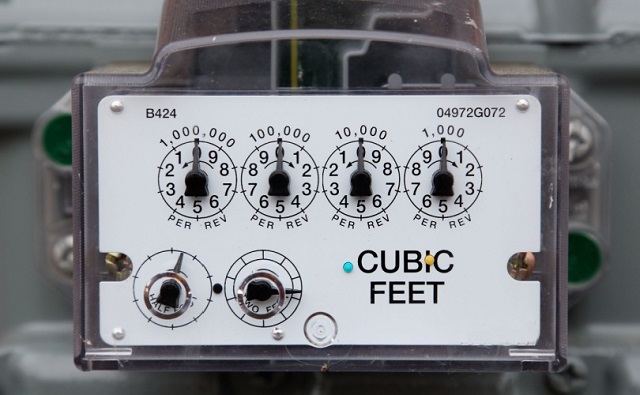Alberta
Another Blow To The Carbon Tax

From Project Confederation
By Josh Andrus
Five years ago, I announced the launch of Project Confederation on Danielle Smith’s CHQR 770 radio show.
That interview changed my life forever.
The project launch was driven by a belief that federal policies – including, but not limited to, the carbon tax – were unfairly targeting Alberta and our economy.
Five years later, we find ourselves opening the next chapter of a long-running saga.
Slowly but surely, Canadians – not just Albertans – have worked out that carbon tax doesn’t make sense, doesn’t work, and isn’t constitutional.
And as the public backlash to the carbon tax grew, the federal government compromised the policy even further, making it even more unpopular and even less constitutional.
On Tuesday, Danielle Smith, now Alberta Premier, announced that her government is going to court to challenge the constitutionality of Ottawa’s selective carbon tax exemption on home heating oils.
The carbon tax, of course, is the levy charged for fuel and combustible waste as outlined in the Greenhouse Gas Pollution Pricing Act and its regulations.
The carbon tax is a tax on everything.
Every product you consume relies on energy-intensive steps in the production cycle – whether it’s the combines harvesting crops, commercial trucks transporting goods, or the electricity powering lights and refrigeration at the grocery store, just to name a few.
This drives costs up throughout the production process in virtually every industry.
The carbon tax also serves as the flagship policy of the Liberal-NDP coalition government, which took office following the 2019 election – just two days before my first appearance on Danielle Smith’s show.
In the eyes of the federal government, the carbon tax represents a beacon to the world, signalling Canada’s new global position as a green, socialist utopia.
In the eyes of the voters, it represents a symbol of the Trudeau government’s unpopularity, a major contributor to ongoing affordability problems and a sluggish economy.
In the eyes of the provinces, it is a clear violation of provincial jurisdiction.
The Act requires provinces to establish these punitive carbon taxes, and if they don’t, the Act allows for Ottawa to impose carbon pricing.
When it was introduced, it faced immediate legal challenges from Alberta, Saskatchewan, and Ontario.
They were joined in opposition to the law by Quebec, Manitoba and New Brunswick – meaning that six provinces, making up over 80% of the Canadian population, believed the carbon tax was a violation of provincial jurisdiction.
The provinces contended that natural resources fall under provincial authority, and that the carbon tax essentially imposes a levy on resource development.
Ottawa, however, argued that climate change constitutes a national crisis and thus falls under federal responsibility.
In 2021, the Supreme Court ruled in favour of the federal government – on the premise that it could be applied as a “minimum national standard.”
“This is in fact the very premise of a federal scheme that imposes minimum national standards: Canada and the provinces are both free to legislate in relation to the same fact situation but the federal law is paramount.”
Just two years later, the Liberal-NDP coalition completely abandoned the minimum national standard by granting a carbon tax carve-out to home heating oils.
Here’s the catch.
In Alberta, Saskatchewan and Manitoba, less than one percent of households use home heating oils to keep their homes warm during cold weather.
That number rises to seven percent in New Brunswick, eighteen percent in Newfoundland and Labrador, thirty-two percent in Nova Scotia and forty percent in Prince Edward Island.
The carbon tax had become such an unpopular policy in Atlantic Canada that the Liberals, trying to stop their collapsing poll numbers, decided to try and regain some votes in the region.
If that weren’t enough, the Liberal government blatantly admitted that the decision was political.
On CTV’s Question Period, Rural Economic Development Minister Gudie Hutchings said “I can tell you, the (Liberal) Atlantic caucus was vocal with what they’ve heard from their constituents, and perhaps they need to elect more Liberals in the Prairies so that we can have that conversation, as well.”
So much for the “minimum national standard.”
Immediately, the constitutionality of the carbon tax was called into question.
Saskatchewan Premier Scott Moe said the move was “not about fairness or about families, it’s only about votes.”
Moe moved swiftly, announcing that SaskEnergy – the Crown corporation that supplies natural gas to residents – would no longer collect or remit the carbon tax on home heating bills in Saskatchewan.
In a misguided effort to curry political favour in the Atlantic provinces, the Liberals have completely compromised the legal standing of the carbon tax and opened the door for provinces to explore new legal avenues against their signature policy.
Now, the Alberta government is seizing that opportunity by filing an application for judicial review of the exemption with the Federal Court, requesting a declaration that the exemption is “both unconstitutional and unlawful.”
“Albertans simply cannot stand by for another winter while the federal government picks and chooses who their carbon tax applies to,” Smith said in a statement. “Since they won’t play fair, we’re going to take the federal government back to court.”
Minister of Justice Mickey Amery added that:
“This exemption is not only unfair to the vast majority of Canadians, but it is also unlawful as the federal government does not have the authority to make special exemptions for certain parts of the country under the Greenhouse Gas Pollution Pricing Act.”
“The federal government isn’t even following its own laws now. Someone needs to hold them accountable, and Alberta is stepping up to do just that.”
The carbon tax has always been unfair to western Canadians, where households use more energy per capita, thanks to our geography and climate.
In a press conference, Danielle Smith went further, saying:
“We’re calling on (the federal government) to repeal the carbon tax. We’ve been calling for that for years. The retail carbon tax is just punitive to taxpayers. It’s punitive to consumers.”
We agree.
It adds an additional expense at every level of the economy, affecting everything from home heating to transportation, and it creates an environment of higher prices on the goods and services we all rely on.
It’s time to take the action that should have been taken long ago.
It’s time to repeal the carbon tax.
Please sign this petition and join our effort to hold the federal government accountable:
Once you’ve signed, please share with your friends, family, and every Canadian.
Regards,
Josh Andrus
Executive Director
Project Confederation
Alberta
Alberta government’s plan will improve access to MRIs and CT scans

From the Fraser Institute
By Nadeem Esmail and Tegan Hill
The Smith government may soon allow Albertans to privately purchase diagnostic screening and testing services, prompting familiar cries from defenders of the status quo. But in reality, this change, which the government plans to propose in the legislature in the coming months, would simply give Albertans an option already available to patients in every other developed country with universal health care.
It’s important for Albertans and indeed all Canadians to understand the unique nature of our health-care system. In every one of the 30 other developed countries with universal health care, patients are free to seek care on their own terms with their own resources when the universal system is unwilling or unable to satisfy their needs. Whether to access care with shorter wait times and a more rapid return to full health, to access more personalized services or meet a personal health need, or to access new advances in medical technology. But not in Canada.
That prohibition has not served Albertans well. Despite being one of the highest-spending provinces in one of the most expensive universal health-care systems in the developed world, Albertans endure some of the longest wait times for health care and some of the worst availability of advanced diagnostic and medical technologies including MRI machines and CT scanners.
Introducing new medical technologies is a costly endeavour, which requires money and the actual equipment, but also the proficiency, knowledge and expertise to use it properly. By allowing Albertans to privately purchase diagnostic screening and testing services, the Smith government would encourage private providers to make these technologies available and develop the requisite knowledge.
Obviously, these new providers would improve access to these services for all Alberta patients—first for those willing to pay for them, and then for patients in the public system. In other words, adding providers to the health-care system expands the supply of these services, which will reduce wait times for everyone, not just those using private clinics. And relief can’t come soon enough. In Alberta, in 2024 the median wait time for a CT scan was 12 weeks and 24 weeks for an MRI.
Greater access and shorter wait times will also benefit Albertans concerned about their future health or preventative care. When these Albertans can quickly access a private provider, their appointments may lead to the early discovery of medical problems. Early detection can improve health outcomes and reduce the amount of public health-care resources these Albertans may ultimately use in the future. And that means more resources available for all other patients, to the benefit of all Albertans including those unable to access the private option.
Opponents of this approach argue that it’s a move towards two-tier health care, which will drain resources from the public system, or that this is “American-style” health care. But these arguments ignore that private alternatives benefit all patients in universal health-care systems in the rest of the developed world. For example, Switzerland, Germany, the Netherlands and Australia all have higher-performing universal systems that provide more timely care because of—not despite—the private options available to patients.
In reality, the Smith government’s plan to allow Albertans to privately purchase diagnostic screening and testing services is a small step in the right direction to reduce wait times and improve health-care access in the province. In fact, the proposal doesn’t go far enough—the government should allow Albertans to purchase physician appointments and surgeries privately, too. Hopefully the Smith government continues to reform the province’s health-care system, despite ill-informed objections, with all patients in mind.
Alberta
Canada’s heavy oil finds new fans as global demand rises

From the Canadian Energy Centre
By Will Gibson
“The refining industry wants heavy oil. We are actually in a shortage of heavy oil globally right now, and you can see that in the prices”
Once priced at a steep discount to its lighter, sweeter counterparts, Canadian oil has earned growing admiration—and market share—among new customers in Asia.
Canada’s oil exports are primarily “heavy” oil from the Alberta oil sands, compared to oil from more conventional “light” plays like the Permian Basin in the U.S.
One way to think of it is that heavy oil is thick and does not flow easily, while light oil is thin and flows freely, like fudge compared to apple juice.
“The refining industry wants heavy oil. We are actually in a shortage of heavy oil globally right now, and you can see that in the prices,” said Susan Bell, senior vice-president of downstream research with Rystad Energy.
A narrowing price gap
Alberta’s heavy oil producers generally receive a lower price than light oil producers, partly a result of different crude quality but mainly because of the cost of transportation, according to S&P Global.
The “differential” between Western Canadian Select (WCS) and West Texas Intermediate (WTI) blew out to nearly US$50 per barrel in 2018 because of pipeline bottlenecks, forcing Alberta to step in and cut production.
So far this year, the differential has narrowed to as little as US$10 per barrel, averaging around US$12, according to GLJ Petroleum Consultants.
“The differential between WCS and WTI is the narrowest I’ve seen in three decades working in the industry,” Bell said.
Trans Mountain Expansion opens the door to Asia

Oil tanker docked at the Westridge Marine Terminal in Burnaby, B.C. Photo courtesy Trans Mountain Corporation
The price boost is thanks to the Trans Mountain expansion, which opened a new gateway to Asia in May 2024 by nearly tripling the pipeline’s capacity.
This helps fill the supply void left by other major regions that export heavy oil – Venezuela and Mexico – where production is declining or unsteady.
Canadian oil exports outside the United States reached a record 525,000 barrels per day in July 2025, the latest month of data available from the Canada Energy Regulator.
China leads Asian buyers since the expansion went into service, along with Japan, Brunei and Singapore, Bloomberg reports. 
Asian refineries see opportunity in heavy oil
“What we are seeing now is a lot of refineries in the Asian market have been exposed long enough to WCS and now are comfortable with taking on regular shipments,” Bell said.
Kevin Birn, chief analyst for Canadian oil markets at S&P Global, said rising demand for heavier crude in Asia comes from refineries expanding capacity to process it and capture more value from lower-cost feedstocks.
“They’ve invested in capital improvements on the front end to convert heavier oils into more valuable refined products,” said Birn, who also heads S&P’s Center of Emissions Excellence.
Refiners in the U.S. Gulf Coast and Midwest made similar investments over the past 40 years to capitalize on supply from Latin America and the oil sands, he said.
While oil sands output has grown, supplies from Latin America have declined.
Mexico’s state oil company, Pemex, reports it produced roughly 1.6 million barrels per day in the second quarter of 2025, a steep drop from 2.3 million in 2015 and 2.6 million in 2010.
Meanwhile, Venezuela’s oil production, which was nearly 2.9 million barrels per day in 2010, was just 965,000 barrels per day this September, according to OPEC.
The case for more Canadian pipelines

Worker at an oil sands SAGD processing facility in northern Alberta. Photo courtesy Strathcona Resources
“The growth in heavy demand, and decline of other sources of heavy supply has contributed to a tighter market for heavy oil and narrower spreads,” Birn said.
Even the International Energy Agency, known for its bearish projections of future oil demand, sees rising global use of extra-heavy oil through 2050.
The chief impediments to Canada building new pipelines to meet the demand are political rather than market-based, said both Bell and Birn.
“There is absolutely a business case for a second pipeline to tidewater,” Bell said.
“The challenge is other hurdles limiting the growth in the industry, including legislation such as the tanker ban or the oil and gas emissions cap.”
A strategic choice for Canada
Because Alberta’s oil sands will continue a steady, reliable and low-cost supply of heavy oil into the future, Birn said policymakers and Canadians have options.
“Canada needs to ask itself whether to continue to expand pipeline capacity south to the United States or to access global markets itself, which would bring more competition for its products.”
-

 Censorship Industrial Complex2 days ago
Censorship Industrial Complex2 days agoHow the UK and Canada Are Leading the West’s Descent into Digital Authoritarianism
-

 Business2 days ago
Business2 days agoCapital Flight Signals No Confidence In Carney’s Agenda
-

 International2 days ago
International2 days agoThe capital of capitalism elects a socialist mayor
-

 Energy1 day ago
Energy1 day agoEby should put up, shut up, or pay up
-

 Business1 day ago
Business1 day agoPulling back the curtain on the Carney government’s first budget
-

 Daily Caller1 day ago
Daily Caller1 day agoUS Eating Canada’s Lunch While Liberals Stall – Trump Admin Announces Record-Shattering Energy Report
-

 Business22 hours ago
Business22 hours agoCarney’s budget spares tax status of Canadian churches, pro-life groups after backlash
-

 Business1 day ago
Business1 day agoThe Liberal budget is a massive FAILURE: Former Liberal Cabinet Member Dan McTeague









